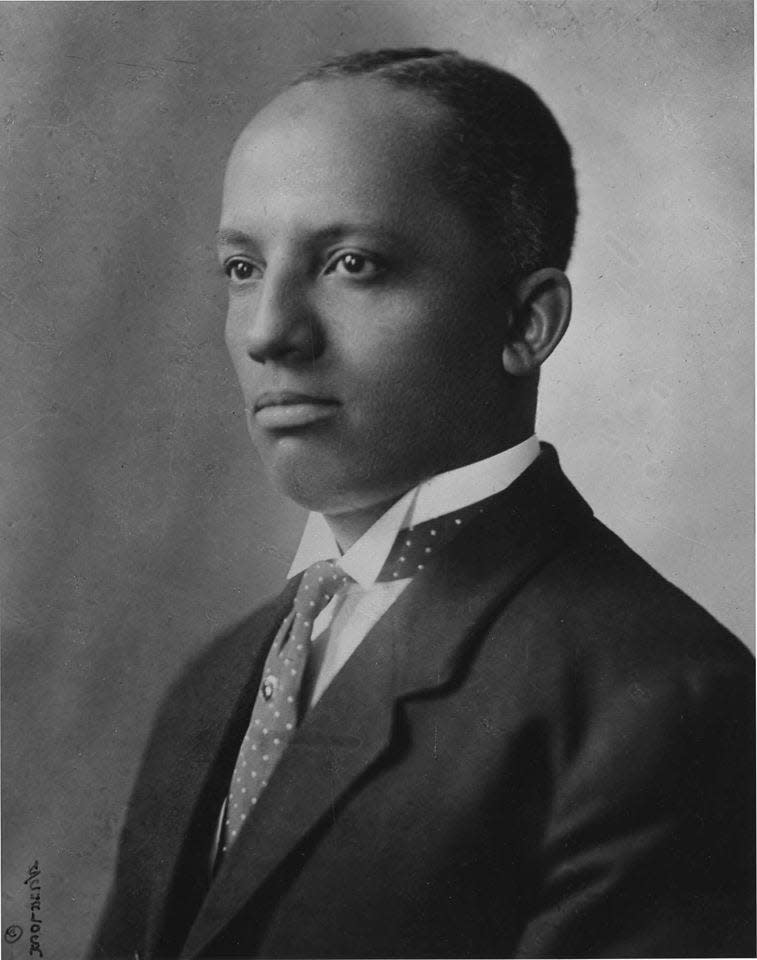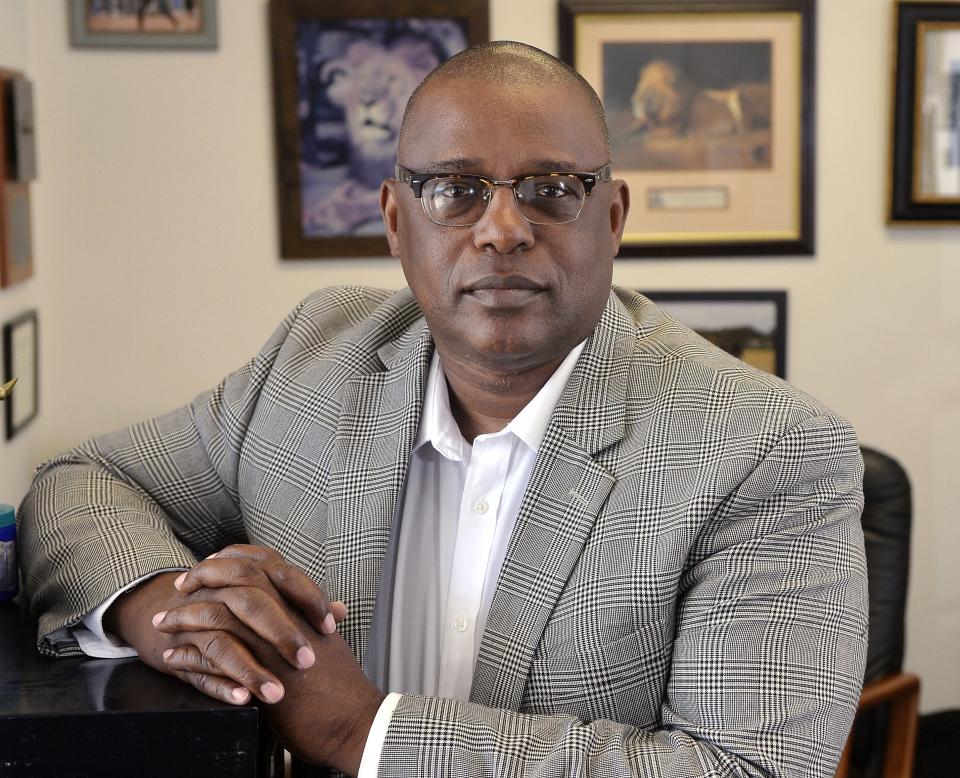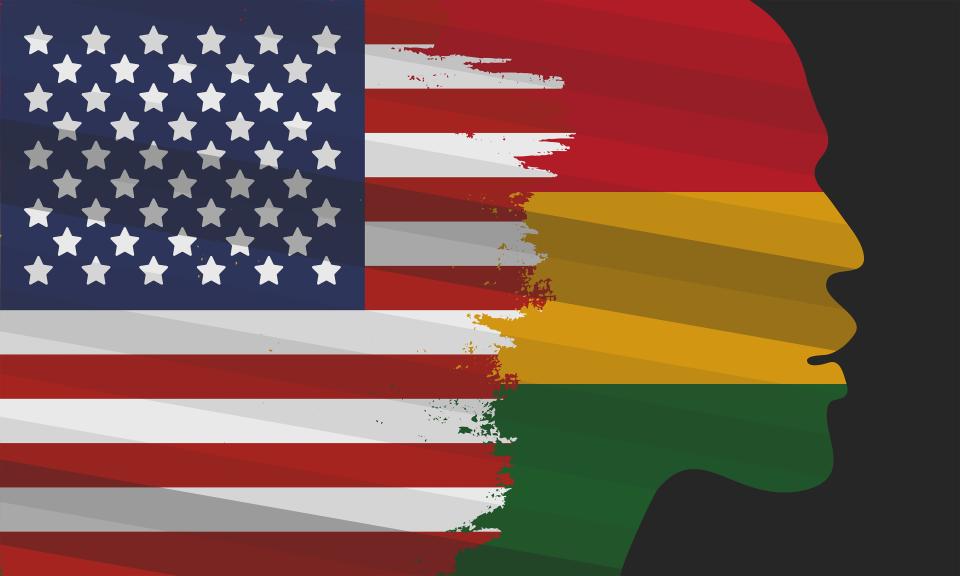Why study Black history? Because it is American history
- Oops!Something went wrong.Please try again later.
Carter G. Woodson (1) is considered the Father of Black History. One of his primary purposes for creating Black History was to negate the racist narratives and inaccurate portrayals of African Americans and Africans in American history and literature. Dr. Woodson, believed the lived-experiences and the narratives of African Americans and other people of color had been intentionally omitted, invalidated, or distorted by the writers, archivists, and educators of American history. Moreover, Woodson asserted African Americans were being mis-educated, inculcated, and indoctrinated to accept a Eurocentric version of U.S. history. This version of history venerated the contributions of white Americans while denigrating the accomplishments of Africans and African Americans.

After he was barred from attending conferences with the American Historical Association, Dr. Woodson, recognizing that white historians were not interested in Black history, created multiple ways to produce, distribute, and consume Black history. In 1926 during the second week in February, Woodson commenced Black History Week (2). Black History Month was established in 1976. And contrary to the shared opinions of most Americans, Black History is celebrated in February, not because it is the shortest month of the year, but in honor of President Abraham Lincoln and statesman and abolitionist Frederick Douglass, who were both born in February (Lincoln on Feb. 12 and Douglass on Feb. 14, respectively).
Once again, Black History is under attack. How Black history is defined, who narrates and determines what should be included in African American history, has, and will probably remain a contentious topic in America. Cornel West (1999) asserts that an increasing number of white Americans avoid discussions about Black history because the debates raise important questions about what it means to be truly American. Moreover, West maintains the difficulty of defending America as a democratic nation is to acknowledge that the historic construction of America must include the subordination of Black people and the near genocide of American Indians. These are sobering, discomforting, but necessary histories (Theoharis, 2018).

Ulrich Bonnell Phillips (3) was an American historian and educator, with special interests in the economics of Antebellum South and slavery in the United States. From 1902 to 1934 Phillips taught that slavery was beneficial to enslaved Africans, arguing that the basic needs (food, clothing, shelter, and health care) of enslaved Blacks were met sufficiently by the slave master. Moreover, he credited slavery with educating, training, and socializing enslaved Blacks.
In July 2023, the Florida State Board of Education revised and approved new African American history standards for grades K-12 that dictate how slavery must be taught. House Bill 7, signed into law by Florida Governor Ron DeSantis in 2022, states, "classroom instruction and curriculum may not be used to indoctrinate or persuade students to a particular point of view inconsistent with the principles enumerated in subsection (3) or the state academic standards (4)." Under these new standards students will be taught that the institution of slavery was an apprentice program where enslaved people gained useful skills that later benefited them.
During the decades of social reforms, 1950 through 1969, our nation witnessed amazing progress: the passage of the Civil Rights Act of 1964 and the Voting Rights Act of 1965, and affirmative action policies that addressed systematic discrimination against racial minorities and women. In the areas of religion, spirituality, and cultural celebrations, Africans Americans introduced Kwanzaa, Afrocentrism, Juneteenth, Black History Month, and Black Liberation Theology to America. Each of these cultural celebrations, philosophies and paradigms centralizes Black people as the protagonists in the stories of extraordinary achievements by African and African Americans, presented through an Afrocentric lens. The main purposes of each accomplishment of the civil rights movement were to elevate the humanity and dignity of Black people and correct the skewed perception of Africans and African Americans for all people.

If the subversion of Black History is permitted, the civil rights movement of the 1950s and 1960s and the sacrifices of freedom fighters such as Bayard Rustin and Martin Luther King Jr., Fannie Lou Hamer and Ella Baker, Maulana Ron Karenga, Cheikh Anta Diop, and Molefi Asante, Carter G. Woodson, and W.E.B DuBois, Stokely Carmichael and Charles Hamilton, and James H. Cone and the National Committee of Negro Churchmen would be sanitized by revisionists who could distort history so that once again, the guys wearing the white hats always win.
Each year America is presented with amazing opportunities to correct the miseducation of all students. Black History offers a safe space to engage in conversations of our shared histories. Therefore, do not avoid race-related conversations, but embrace them. Dr. Woodson acknowledges that the promotion of African and African American history would not have been successful without the cooperation and commitment of elementary and secondary teachers.
Paulo Freire (2009) maintains classrooms must become a space where all students are affirmed and offered hope and experience the values of freedom and equality. Education should reflect the contemporary struggles in society; grounded in the belief that people can freely discuss the difficulties of the day (Freire, 1972). Support and encourage education and cultural events that expose students to diverse perspectives of history. Some suggested activities are: Visit virtually or in-person the Smithsonian National Museum of African American History and Culture (5) in Washington, D.C. In Erie, consider participating in Walking in Black History, an educational program and tour sponsored by Urban Erie Community Development Corporation (UECDC)(6) or visit the Historical Institute of Culture & the African American Experience in Erie (7)
Parris Baker, Ph.D., MSSA, is an associate professor at Gannon University, a Jefferson Educational Society scholar-in -residence, and pastor of Believers International Worship Center in Erie.
References
Asante, M.K. (2003). "Afrocentric: The theory of social change." Chicago, IL: African American Images.
DiAngelo, R. (2018). "White fragility: Why it's so hard for White people to talk about racism." Boston, MA: Beacon Press Books.
Freire, P. (1985) "Reading the world and the word: An interview with Paulo Freire." Language Arts 62. no. 1: 12-20.
Theoharis J. (2018). "A more beautiful and terrible history: The uses and misuses of civil rights history." Boston, MA: Beacon Press.
Tyack, D. (2003). "Seeking common ground: Public schools in a diverse society." Cambridge, MA: Harvard University Press.
West, C. (1999). "The Cornel West reader." New York: Basic Civitas Books.
This article originally appeared on Erie Times-News: Erie Prof. Parris Baker explains importance of studying Black history

